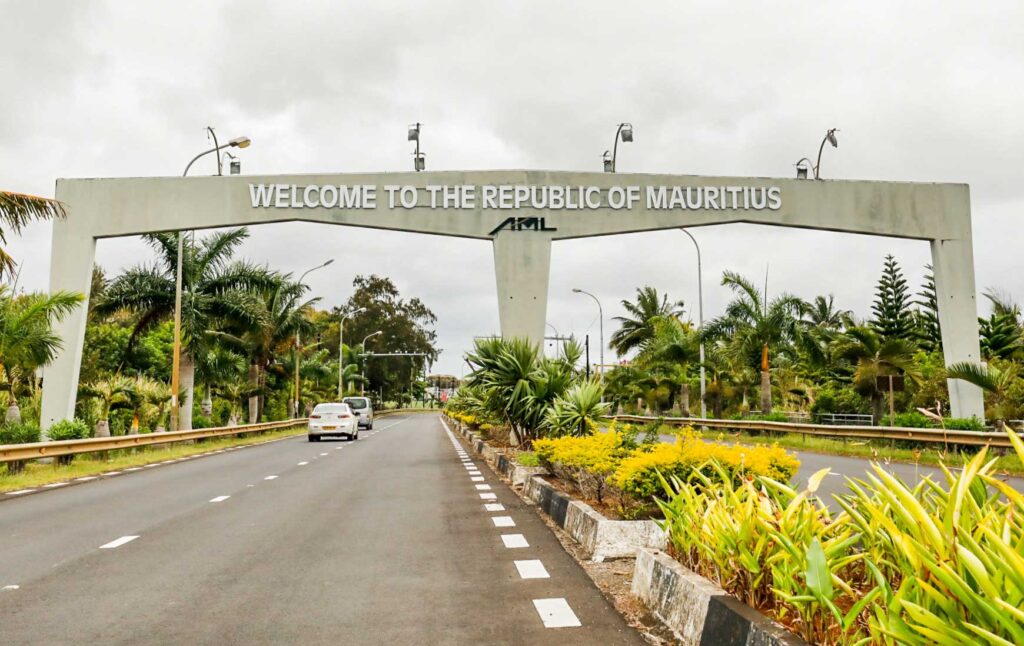Mauritius was placed on the Financial Action Task Force (FATF) grey list in February 2020 and blacklisted by the European Union later that year for strategic deficiencies in their anti-money laundering and counter-terrorist financing frameworks.
Long considered an oasis of good governance and prudent financial management on the African continent, the decisions inflicted significant reputational and economic damage on the country at a time when it was already reeling from the consequences of the COVID-19 pandemic. However, with swift and pragmatic decision-making, authorities were able to mitigate its most damaging consequences and quickly reverse the decision.
Considering the recent greylistings of Kenya and Namibia this year, and South Africa in 2023, Mauritius’s success offers an important example for the rest of the continent.

In February 2024, Kenya and Namibia were added to the FATF grey list. The two African states are now under increased monitoring by the organisation for their inadequate measures against money laundering and terrorism financing. The FATF announced their addition to the list on 23 February this year at its Paris plenary meeting.
Kenya was given eight targets as part of its greylisting removal criteria, including regular updates of its risk assessments to the authorities and private sector, along with updates of its anti-money laundering and counter-terrorism financing strategies, enhancing the comprehension of preventative measures for financial institutions and designated non-financial businesses and professions, and improving the use and quality of its financial intelligence capabilities. The risks identified in a FATF report in 2022 included its use as a transit route for drugs and illegal wildlife trafficking, as well as the risk of terrorism financing via its proximity to active terrorist groups in neighbouring countries.
Namibia has also been issued with eight goals, including measures to enhance its anti-money laundering and counter-terrorism financing risk-based supervision, providing its Financial Intelligence Centre with adequate human and financial resources and training to strengthen analysis and proving the law enforcement authorities’ competencies in investigating and prosecuting money laundering (ML) and terrorism financing (TF) cases.

The FATF assessment for Kenya and Namibia was predicated on a mutual evaluation report (MER) completed in September 2022 by the East and Southern Africa Anti-Money Laundering Group (ESAAMLG). Headquartered in Dar es Salaam, Tanzania, the ESAAMLG is the anti-money laundering authority for the east, central, and southern Africa region. It uses the FATF’s methodologies and benchmarks, including the FATF’s 40 recommendations, to determine the capacity of a particular jurisdiction to combat ML, TF, and Proliferation Financing (PF). The FATF then consults the ESAAMLG’s findings in deciding whether or not to list or de-list a country under the regional body’s jurisdiction.
In general, greylisting can have multiple negative effects, according to research by African risk consultancy Signal Risk.
First, it can suppress direct and portfolio inflows due to reputational risk and administrative burdens. Doing business in a grey listed jurisdiction increases the risk that commercial actors could be exposed to, possibly handling money and assets that are the proceeds of illicit activity. As such, various funds and companies warn against, and often sanction, such engagements. Data by the International Monetary Fund (IMF) has found that greylisting results in an average decline in capital inflows equivalent to 7.6% of GDP. Data by KPMG also suggests that correspondent banking between grey listed and non-greylisted jurisdictions may decline by as much as 20% following inclusion on the FATF’s grey list. Meanwhile, data from SWIFT (the international payment platform) found that external receipts among affected countries declined by as much as 10% after greylisting.

Second, greater scrutiny of trade finance and cross-border transactions tends to hamper both imports and exports. Meanwhile, increased oversight by banks and tighter regulations on transactions generally slow their volume and impede the performance of the domestic banking sector. Meanwhile, the cost of foreign and locally denominated debt typically rises, as creditors factor in a premium for dealing with actors in a risky jurisdiction.
James George, compliance manager at Compli-Serve SA, notes that Mauritius was initially greylisted for several reasons, including a lack of effective risk-based supervision, limited access to beneficial ownership information, and insufficient oversight on non-profit organisations that may be subject to terrorist financing. There was also a general ineffectiveness in conducting money-laundering investigations.
In her analysis in The Africa Report, Shianee Calcutteea of the law firm Bowmans noted that the repercussions of being perceived as a country with a high money laundering and terrorism risk profile were serious. Business activity, especially with EU members, became increasingly difficult, which adversely affected the economy. The impact was particularly severe in the global business and banking sectors, which are a mainstay of the island’s economy. Moreover, Mauritius was subject to enhanced monitoring and reporting, financial institutions operating within the country faced stricter regulations and scrutiny, and investors perceived the country as having higher risks associated with money laundering and terrorist financing.
Despite significant challenges, Port Louis managed to reverse the greylisting in record time. Impressively, whereas it can take a country up to five years to move off the list, Mauritius did it in only two – a testament to its nimble and effective turnaround strategy.

Three key elements underpin the country’s turnaround strategy.
First is coordination. The private sector and government, realising the gravity of the situation, knew that a holistic approach was needed. This “all hands on deck” approach meant that remedial efforts were accelerated with resource mobilisation and efficient execution prioritised.
Practically, the private sector set up various capacity-building initiatives to improve the skills and expertise of professionals working in the Anti-Money Laundering/Countering the Financing of Terrorism (AML/CFT) sector. Training programmes for law enforcement officials, financial regulators, and other relevant stakeholders to enhance their understanding of AML/CFT issues and improve their ability to combat financial crimes effectively were key elements in this strategy.
A regularity body, the Mauritius Institute of Professional Accountants (MIPA), developed an action plan. MIPA published ‘Anti-Money Laundering and Countering the Financing of Terrorism (AML/CFT)’ guidelines in early 2021 to help licensees better understand their obligations and guide them in implementing an AML/CFT framework. MIPA also developed an awareness strategy and conducted outreach to the licensees as a key remedial action.
Second is collaboration. Domestically, appropriate AML/CFT supervisory agencies convened and cooperated with one another, resulting in the establishment of an AML/CFT supervisory forum. This enabled supervisors to share best practices and lessons learned to ensure compliance with AML/CFT obligations. To that end, a memorandum of cooperation was signed by supervisory authorities to formalise their coordination regarding policy formulation, exchanging information, joint outreach, staff training, and operational coordination to combat money laundering, terrorist financing, and proliferation in Mauritius.

The parties to the memorandum included the Bank of Mauritius, Financial Services Commission, Financial Intelligence Unit, Attorney General Office, Registrar of Companies, Gambling Regulatory Authority, and MIPA. Externally, Mauritius enhanced its collaboration with international counterparts, including other countries and international organisations such as the FATF, to address cross-border financial crimes effectively. This cooperation involved sharing information, intelligence, and best practices. Mauritius also received technical assistance from the EU’s Global Facility on AML/CFT and the German government to assist with implementation.
Third, a high level of commitment. There was steadfast political will from the government to remedy the situation. A high-powered committee headed by the Prime Minister was assembled early on to accelerate Mauritius’ implementation of its FATF Action Plan. Importantly, there was a level of urgency led by the presidency to restore the integrity of Mauritius as an international financial centre. By implementing these measures, Mauritius demonstrated its commitment to addressing the deficiencies identified by the FATF and aligning its AML/CFT framework with international standards. Consequently, Mauritius successfully exited the FATF grey list in 2022.
For many analysts, the greylisting was a blessing in disguise and provided impetus for Mauritius to clean its house and restore the integrity of its financial services industry. Although damaging, the recent greylistings of Namibia and Kenya should be seen in a similar light. They present an opportunity to repair and rebuild trust in financial systems and tackle the serious issues of financial crimes and corruption.
There are multiple benefits to doing so. Aside from the obvious reputational rewards, exiting the grey list would facilitate easier access to international financial markets, reduce compliance and administrative burdens, enhance overall security, and boost a country’s standing within the global business community.
Such efforts are important against a volatile global backdrop where capital is increasingly discretionary. In this context, countries that offer stability and consistency in their financial and regulatory environments will emerge as clear winners in the investment arena.
For African nations that have suffered a similar fate, the Mauritian template offers a clear example of what can be done with cohesive and clear communication, credible policymaking, and multi-stakeholder collaboration. The likes of South Africa, Namibia, and Kenya would do well to draw inspiration from the small island nation and learn these lessons on the road to redemption.

RONAK GOPALDAS is a director at Signal Risk, an exclusively African risk advisory firm. He was previously the head of country risk at Rand Merchant Bank (RMB) for a number of years, where he managed a team who provided the firm with in-depth analysis of economic, political, security and operational dynamics across sub-Saharan Africa. He holds a BCom degree in philosophy, politics and economics (PPE) and a BCom (Hons) from the University of Cape Town (UCT). He also has an MSc in finance (economic policy) through the School of Oriental and African Studies (SOAS) in London.[



